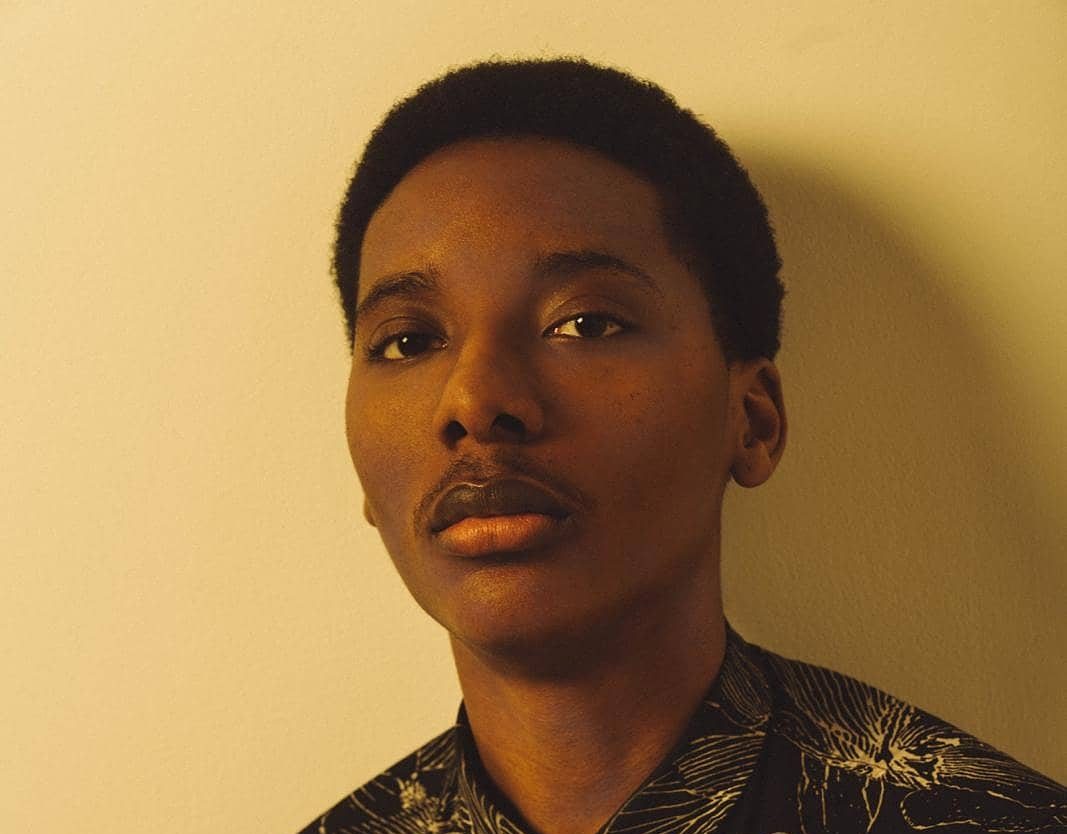
Tradition as a Template: An Interview with Quinton Barnes
LGBTQ+
With its booming 808s and swaggering hooks, Quinton Barnes’ new album, As a Motherfucker, is perfectly qualified to set the tone at the party. If the album were a passerby on the street, it’d be fitted with the boldest and most recognizable high-end fashion—Gucci logo strewn across the chest, bright Balenciaga sneakers. But while As a Motherfucker flaunts its flashiness, it never feels haughty. It’s bold and sexy, yet well-appointed—and that’s only a first impression.
The Canadian singer and producer has sewn an undeniable, boundless confidence into his new album, and it isn’t a facade. Like the popular, confidence-driven artists and styles of today—Travis Scott’s stereo-sculpted trap or Disclosure’s accelerated synth pop, for example—Barnes has the ability to transmit the power of swagger into his listeners. “I don’t like slow jams,” says Barnes, “I can’t explain why. I like stimulation.” It’s thrilling to be on the receiving end of such triumphant music; our inhibitions dissolve, and we feel that not only do we want to be seen—we’ve never felt more ready. This mode of confidence is especially conducive to dancing at the club or cultivating energy on the ride to the function—and As a Motherfucker delivers.
However, Barnes’ music has a deeply vulnerable core, which sets him apart from other purveyors of musical self-assurance. “As humans, when the person who hurt us won’t rectify our pain, the only thing we feel we can do is to act tough and try to hurt them more,” he says. While openly expressed pain may not be the first ingredient that listeners notice, Barnes is unafraid to explore it. “Yeah, I act confident,” he says, “and sometimes I truly am, but behind the bravado, there is hurt. We are never fully what we aim to be.”
“As humans, when the person who hurt us won’t rectify our pain, the only thing we feel we can do is to act tough and try to hurt them more.”
Barnes’ self awareness regarding the multi-purpose deployment of confidence in his music offers contrast to common musical braggery that can sometimes leave listeners searching for further dimensions beyond the hubris. When A$AP Ferg repeats “I’m on a new level,” the result is a perfectly enjoyable and straightforward expression of intact ego. With Barnes though, conflicting takes on self-confidence consistently appear throughout. “I am trying to highlight how contradictory we are,” he says.
“Metallic” showcases Barnes’ use of confidence as a shelter for painful emotions. First, he sings “I’m crying / I’m living and dying and I wish someone could help me.” Then, he considers another perspective as the rhythm gathers pace: “Well, I can’t be sad forever like.” Finally, Barnes’ singing voice returns to deliver a catchy and exultant refrain: “At least I run shit, I got that goin’ for me / At least I got hits, I feel another coming.” It all feels devastatingly organic. The self offers confidence just when emotional pain is at its most intense. As Barnes explains, this is both a “contradiction” and “defense mechanism,” a heartfelt observation that is unexpected on an album this thoroughly danceable and high energy.
While As a Motherfucker flourishes as up-tempo R&B, it also pulls from Barnes’ motley assortment of beloved influences. “I was thinking, ‘what would it sound like if Autechre produced Prince’s 1999?,” he says. Barnes demonstrates that electronic and industrial accents can alter the very framework of traditionally structured R&B. On As a Motherfucker, these eccentric production elements are not just sprinkled throughout—they define the album’s identity. “I personally get bored of the standard verse-chorus format,” says Barnes, “but not because I don’t like it—it’s a template from which I branch out and explore.”
“I am trying to highlight how contradictory we are.”
On “How I Feel,” a dissonant breakdown provides pause in the midst of Barnes’ lavish crooning. Because the varied influences on display represent Barnes himself, the end product feels personal and intimate. He marshals divergent components and somehow succeeds in building a unified whole. “Where I grew up, it’s very diverse. I have an image of the future where we’re all united,” says Barnes. “I try to represent that in my music, too.”
In addition to his songwriting, production and dance-based performances, Barnes mixes and masters all of his own work. “I was really young when I learned how expensive it is to hire a producer,” he says. “I thought, well, I’m just going to have to learn how to do it myself.” Now, Barnes’ well-deserved momentum is growing, from within his local scene and beyond. Self-described as “a bit of a hermit,” Barnes’ process has yielded two densely crafted albums in the space of a year, and he is already well into the process of creating the next one. “I want to make sure my new stuff is not affected by how the last one was received,” he says. “It makes me work a lot.”
Barnes is a member of and releases music through the Grimalkin Collective, a “queer-focused record label prioritizing QTBIPOC and supporting grassroots organizations through DIY releases.” Of the relationship, Barnes says “I feel aligned with the values. I think artists should be about something, and Grimalkin is.” He describes the collective as “a bunch of creative, forward-thinking weirdos. It’s just the right atmosphere.”
After Barnes submitted the “final” version of As a Motherfucker to Grimalkin, he found himself “deleting it, making changes, and re-uploading it,” he says. “Sometimes I feel like I could try to perfect it forever.” With the tendencies of an artist whose work is a diligent reflection of the person within, Barnes has delivered an R&B hybrid of the traditional and the abstract. It’s music you can dance to, with a remarkable penchant for emotional honesty.
